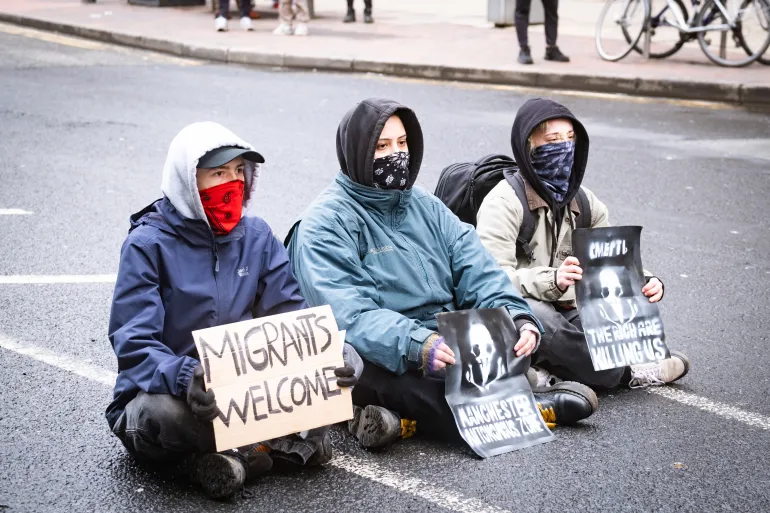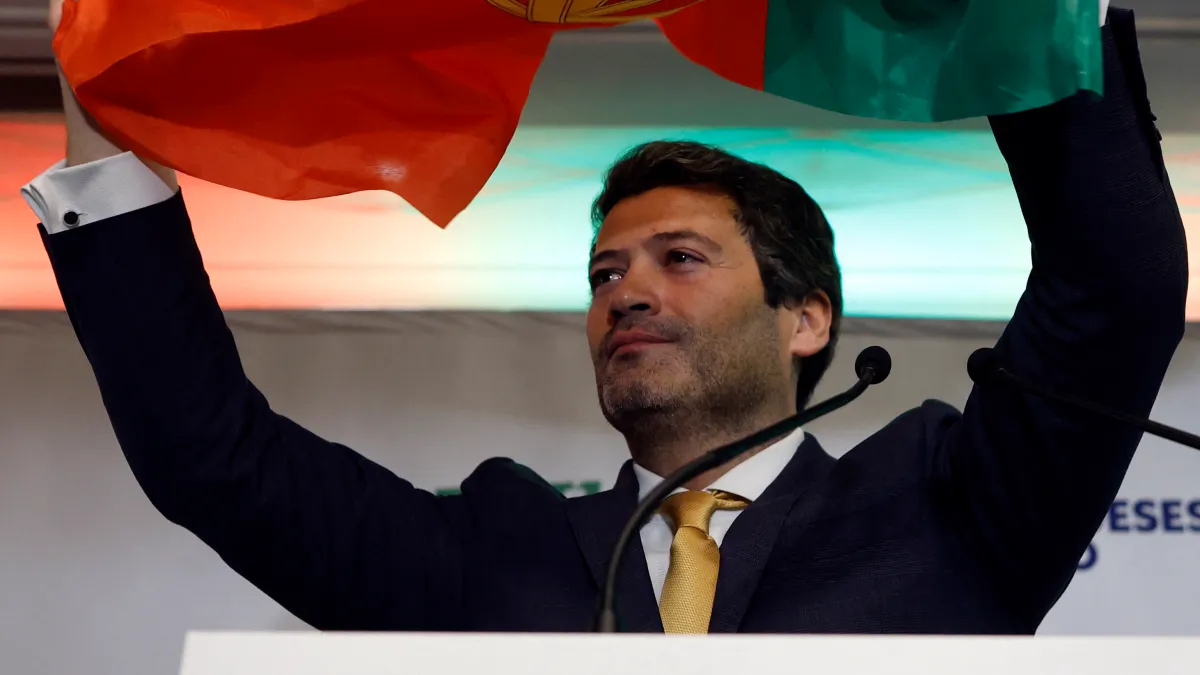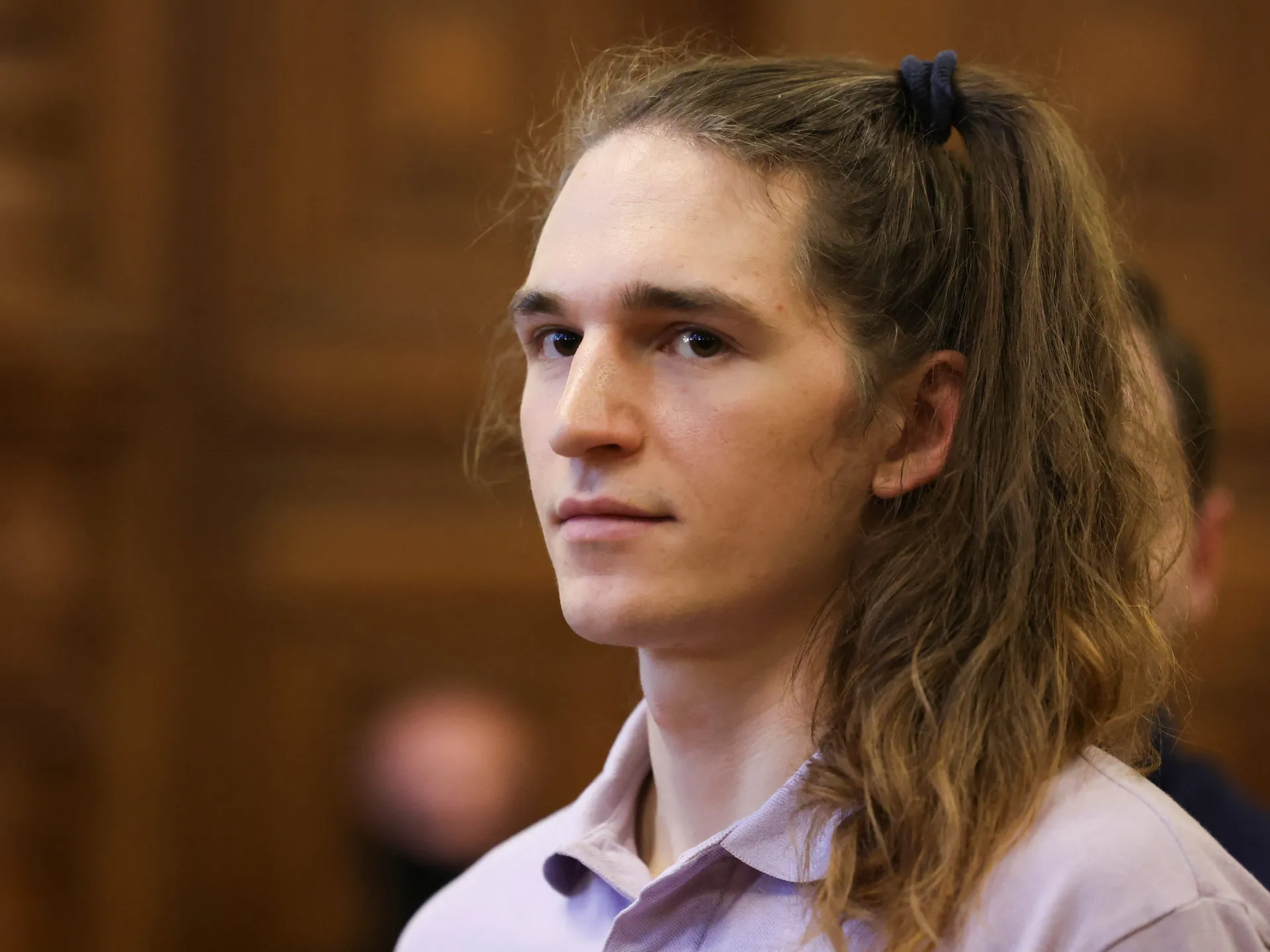Far-right anti-Islam march sparks counterprotests in Manchester | Racism News
Hundreds of Britain First protesters faced larger antifascist crowds in a tense Manchester city centre standoff.
Manchester, United Kingdom – Chants of “send them back” echoed through a damp underpass as hundreds of far-right anti-Islam protesters prepared to march through the streets.
Union Jacks fluttered in the wind as protesters – some visibly under the influence of alcohol – chanted a series of anti-immigration slogans and derisive comments about British Prime Minister Keir Starmer.
Recommended Stories
list of 4 itemsend of list
In response to the demonstration organised by Britain First, a far-right political party that calls for mass deportation and the removal of migrants and Muslims from the UK, a counterprotest was also planned for midday on Saturday.
It formed a much larger crowd made up of antifascist protesters who gathered a few streets away, carrying antiracist banners and waving an array of flags, including the Palestinian flag.
Ruby, 20, a student from South London, took a five-hour coach ride to show her support for the counterprotest and told Al Jazeera that attending was a “no-brainer”. She asked that her surname not be published, fearing repercussions.

‘A master race’
Ruby said her grandparents, originally from Montserrat, were part of the Windrush generation – immigrants invited to the UK between 1948 and 1971 from Caribbean countries – and, despite having given so much to their adopted country, are now feeling increasingly unwelcome.
She said her grandparents had told her they were witnessing a return to the levels of racism they experienced when they came to the country in the 1950s.
It was a sentiment echoed by Llowelyn, 16, a counter-protester from Wales who said her father, who is British Guyanese, has received more verbal abuse based on his race in the past few years than at any other point.
The tension was palpable before the two marches were due to begin, with far-right agitators livestreaming to their followers as they entered the area assigned to the counterprotest.
John – a stocky, tenacious counter-protester from Wales – confronted them with arms outstretched as police officers looked on.
“They come here to cause a ruckus and make money of it online, but I come here to protect the left. These guys [far-right agitators] try and intimidate … minorities because they think they are a master race”, he told Al Jazeera.
As the Britain First march began, flanked by police and led by Paul Golding, a portly, combative far-right activist who has previously been imprisoned for religiously aggravated harassment, the celebratory mood quickly turned aggressive as they came across counter-protesters in the city centre.
“Leftie scum,” screamed one member of the Britain First crowd as they harassed three young people who staged a sit-down, forcing riot police to encircle and pull them to safety.

‘Divisive, racist positions’
The two marches finally met in an expletive-ridden crushendo as police struggled to hold ranks.
Britain First protesters prodded counter-protesters with flag poles, and some slipped through the porous police lines as they shouted anti immigration and anti-Palestine slogans.
A number of counterprotesters and bystanders expressed frustration that the police allowed the march to go ahead.
“We, as Jews and internationalists, are having to confront Britain First, the fascists who are organising on the streets, who have been permitted to market their divisive, racist, dictatorial positions on our streets,” Pia Feig, of Jewish Action for Palestine, told Al Jazeera.
Audrey, a teacher and counterprotester who was pushed away by police after being shoved by a Britain First protester, said the police always “protected” the far-right groups.
A police officer told Al Jazeera that the day required extensive planning and was a particularly difficult operation, as the two groups kept changing their planned route.
He said on condition of anonymity that handling the two conflicting protests, a rally in support of Ukraine, and managing crowds at large football fixtures held this weekend had stretched the local police force thin.




